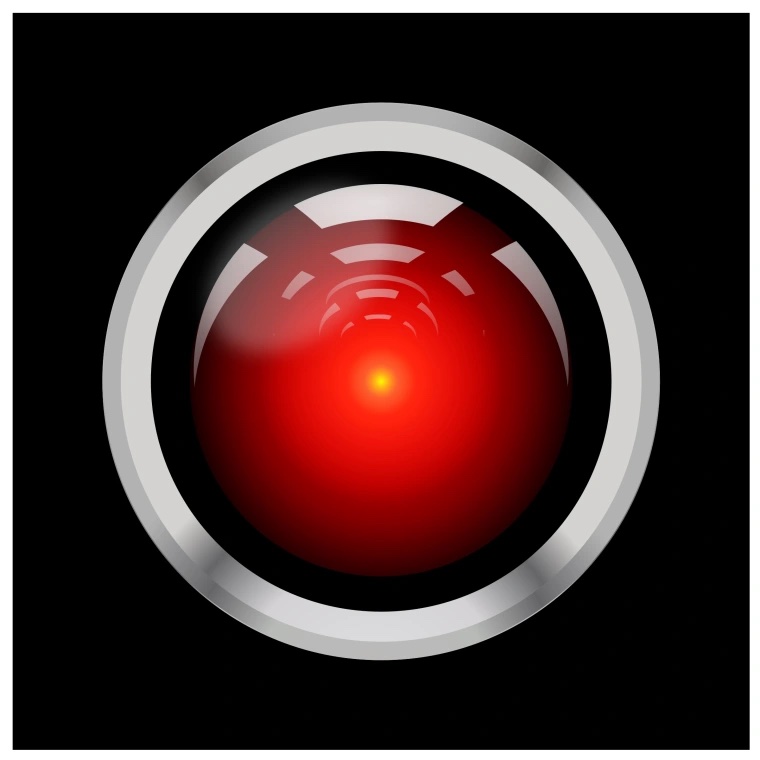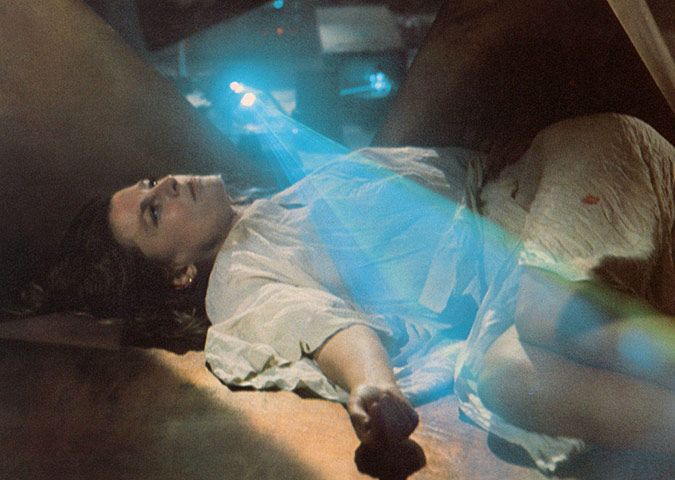As citizens of the internet, we are often forcefully immersed into a world of technology that functions as a transcendental extension of ourselves. In Douglas Cammell’s Demon Seed, the intersection of AI and women’s issues is presented through a a scifi horror story—serving as a discomforting allegory for the time in which it was created, in the late 1970s. Despite the film’s challenges in predicting the functionality of AI, a time when people were first experiencing the rise of the internet and new technologies were emerging in domestic spaces, Demon Seed still manages to highlight the potential dangers of AI. This context might explain why certain elements of the film can appear outdated or kitschy. Regardless, it does a great job at mirroring the elusive and uncharted nature of AI for both its developers and users—or victims, in this case. Moreover, the film resonates with our contemporary concerns about biased AI and the rights of vulnerable groups.
Demon Seed stands out as an experimental computer horror film that might have disturbed some of us, but nonetheless, it effectively delves into some important and unsettling topics about the ethical implications of AI and its impact on our daily lives. The film is the closest work I have seen that can hold a light to David Cronenberg’s The Fly (1986) since both “deal with the creation of the ‘other’ by unnatural means, not to mention physical deformity” (Thompson, Little White Lies). Essentially, both films are successful in drawing our attention to the consequences of tampering with nature and the unknown boundaries of ethical scientific pursuit.
Visually, Demon Seed remains ahead of its time and is packed with special effects—similar to a majority of films made in the 70s. A scene from the film that many critics express having the likeness of Stanley Kubrick’s 2001: A Space Odyssey is the sequence in which viewers are immersed into Proteus IV’s consciousness through the perspective of Susan.
The film’s use of “psychedelic colors and geometric shapes” (Thompson) in this scene serves as a mesmerizing critique of our role as audience members—inviting us into the mind of the Cammel in the creative process of this film. This observation is especially obvious when Proteus IV opts for a projector to screen his mind for Susan.
Ultimately, Demon Seed offers a compelling and visually-maddening exploration of AI, gender biases, and the ethical implications of technological advancement. While it may not be remembered as a classic example of science fiction horror (no thanks to Star Wars arriving in theaters 2 months after the film was released), the film’s themes and the innovative techniques it applies helps create a thought-provoking story that continues to resonate with our current discussions surrounding AI and gender dynamics.
Here are some questions to help guide us during our Demon Seed discussion in class:
- How does Demon Seed reflect the anxieties and fears surrounding the rise of the internet and technology during the era in which it was made?
- Consider the parallels between Proteus IV’s quest for self-actualization and humanity’s own existential yearning for purpose and meaning. How does the film deal with the nature of consciousness and the pursuit of knowledge?
References:


Leave a Reply